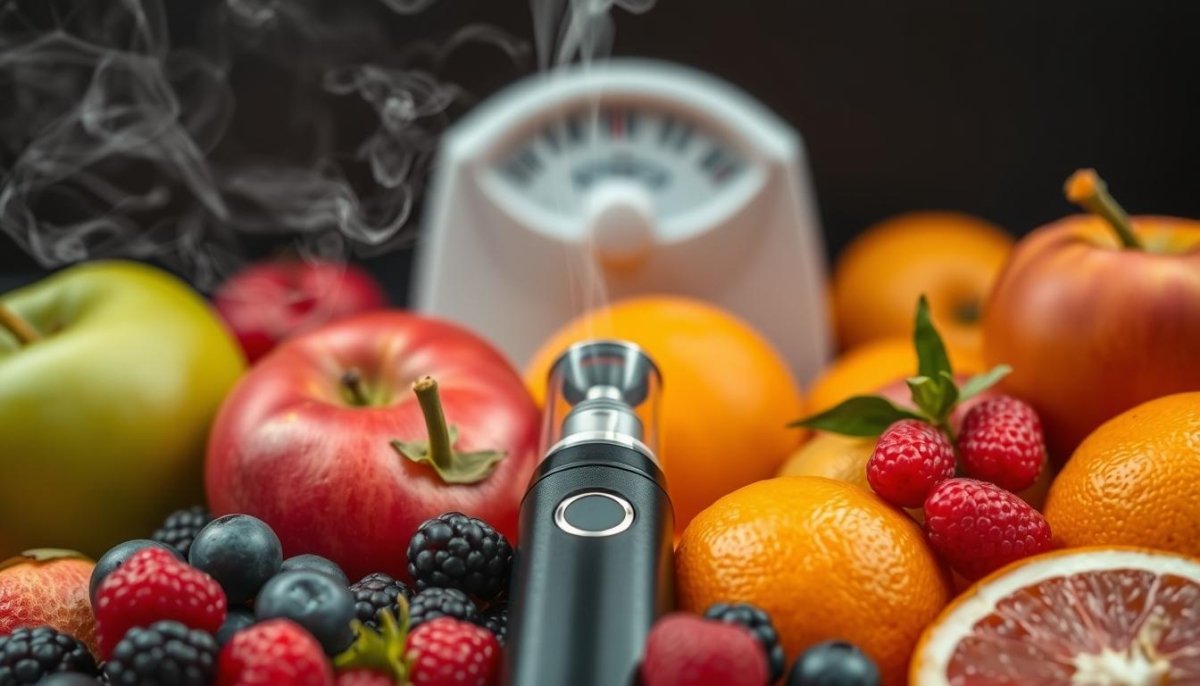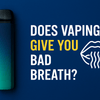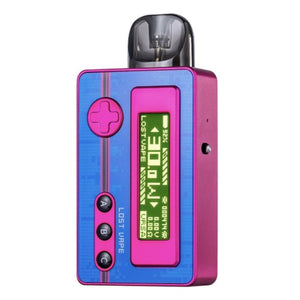Do Vapes Have Calories? Everything You Need to Know

Do Vapes Have Calories? Everything You Need to Know
Vaping is getting more popular, and people want to know about its calories. Surprisingly, vapes do have calories, but they are very few. They are much less than what you find in tobacco or food.
E-liquids, which are what you vape, have about 4 calories per millilitre. So, a 10ml bottle has around 40 calories. Disposable vapes, like elf bars, have about 8 calories each.
But, you can't absorb these calories by vaping. They need to be digested to be used by the body. The main reason vaping might help with weight is because nicotine can make you less hungry.
Key Takeaways
- E-liquids contain a small number of calories, but the amount is negligible compared to other food and beverage options.
- The primary components of e-liquids, VG and PG, each contribute around 4 calories per millilitre.
- Disposable vape devices like elf bars contain approximately 8 calories per unit.
- Calories in e-liquids cannot be directly absorbed through inhalation, as they require digestion for absorption.
- The impact of vaping on weight is primarily due to nicotine's appetite-suppressing effects.
Understanding Vaping and Its Components
Vaping is a popular choice instead of smoking traditional cigarettes. It uses electronic devices that create an aerosol or "vapour" for users to breathe in. The e-liquid, the fluid that gets vaporised and consumed, is at the core of vaping. Knowing what makes up e-liquids helps us understand how many calories vaping might have.
What Makes Up E-liquids?
E-liquids are made from a mix of important ingredients:
- Vegetable Glycerol (VG) - A thick, odourless liquid that creates a dense, satisfying vapour.
- Propylene Glycol (PG) - A thin, colourless liquid that gives a stronger throat hit and better flavour.
- Flavourings - A wide range of flavour extracts that give vape juices their unique tastes.
- Nicotine (optional) - An addictive substance that mimics the sensation of smoking traditional cigarettes.
The Role of Propylene Glycol and Vegetable Glycerin
Propylene Glycol (PG) and Vegetable Glycerin (VG) are the main parts of e-liquid. They are key in making the vapour that vapers breathe in and out. Both PG and VG have a small number of calories, about 4 calories per gram. This means e-liquids have very few calories.
"Vaping has the potential to be a game-changer in the world of nicotine addiction, but understanding the nuances of its components is essential for users to make informed choices."
Calories and E-liquids: Are They Present?
E-liquids used in calorie-free vaping do have calories. These calories come from Vegetable Glycerin (VG) and Propylene Glycol (PG). But, the calories in e-liquids are very small and don't make you gain weight.
Breakdown of Ingredients
A 10ml bottle of e-liquid has about 40 calories. VG has 32 calories per gram, and PG has just 1. Even though they add calories, vaping doesn't give you many calories compared to eating or drinking.
Flavourings and Sweeteners
The nutritional value of vape juice also depends on flavourings and sweeteners. Good brands like EDGE E-liquids use little or no sweeteners for a calorie-free vaping experience. But, some might use sugar, making their e-liquids more calorie-rich.
It's clear that e-liquids don't add much to your calorie intake. Some research even suggests vaping might help you eat less, which could lower your calorie intake even more.
| Ingredient | Calorie Content |
|---|---|
| Vegetable Glycerin (VG) | 32 calories per gram |
| Propylene Glycol (PG) | 1 calorie per gram |
| Sweeteners (Sugar-based) | Significantly higher calorie content |
| Sweeteners (Artificial) | Calorie-free |
In summary, e-liquids do have calories, but vaping doesn't add much to your weight. Choosing sugar-free vape juices with artificial sweeteners is a healthier option. It reduces the nutritional value of vape juice and makes vaping healthier.
How Much Energy Do Vapes Provide?
Vapes don't give much energy in terms of calories. An average e-liquid bottle has about 30-50 calories. This is not enough to make you gain weight. The energy from vaping comes from the heat and nicotine, not calories that your body can use.
Over 3 million UK adults use e-cigarettes. The liquids in vapes, like nicotine and propylene glycol, have zero calories. A puff from an e-cigarette has less than 5 calories. This is much less than what you find in foods and drinks, like grapes or black coffee.
Thermal and Chemical Energy Considerations
Vaping might slightly raise your metabolic rate and make you feel less hungry because of nicotine. But it doesn't burn many calories. The calories in e-liquids, made of vegetable glycerin and propylene glycol, are very small, about 4 calories per gram.
It's key to think about your total calorie intake each day. A middle-aged, moderately active woman should eat about 2,000 calories. A middle-aged, moderately active man should eat 2,400 to 2,600 calories. Eating less than 1,500 calories for men and 1,200 calories for women is not good.
Vaping is seen as less harmful than smoking. It doesn't raise blood sugar levels or pose a big risk for type 2 diabetes. But, some people might gain weight when they switch to vaping. This could be because of changes in appetite, taste, metabolism, and water retention after quitting smoking.
In summary, vapes give some energy, but not much in terms of calories. The small amount of calories in e-liquids won't cause a lot of weight gain. Vaping is a healthier choice than smoking traditional tobacco products.
Nutrition Labels: Do Vaping Products Have Them?
The vaping industry has faced criticism for not being clear about the nutritional value of vape juices. Unlike food and drinks, vaping products usually don't have detailed nutrition labels. These labels would show the calories, ingredients, and other important nutritional info.
Transparency in the Vaping Industry
Vaping products are not seen as food, so they don't have to follow the same labelling rules. This means vape makers don't have to list all the details on their products. But, many good brands do tell you about the main parts of their e-liquids, like the PG to VG ratio and nicotine levels.
The lack of standardised labels in vaping shows we need more openness and rules. People should know what they're getting in their vaping products. This info helps them choose wisely and understand any health risks.
| Vape Product | Caloric Content | Nicotine Impact | Ingredient Transparency |
|---|---|---|---|
| SKE Crystal Vapes | Virtually zero calories | Nicotine-free | Fully disclosed ingredients |
| Disposable Vapes | Calorie-free | Nicotine content varies | Limited ingredient disclosure |
| Flavored E-liquids | Calorie-free | Nicotine content varies | Ingredient lists available |
As vaping grows, it's key for makers to be open and share all they know about their products. This honesty will help build trust and let vapers make better choices for their health.
Comparing Vapes and Traditional Tobacco Products
Vapes and traditional tobacco products have a big difference. Vapes don't have tar and carbon monoxide. This makes vaping 95% less harmful than smoking, says Public Health England.
Propylene glycol (PG) and vegetable glycerine (VG) are in vape liquids. They don't add many calories when you inhale them. An average person uses about 1 ml of e-liquid a day. This is only 0.02 calories from the 20mg of nicotine.
Calories in Tobacco
Tobacco products, like cigarettes, don't have many calories. The burning process in smoking makes harmful stuff like tar and carbon monoxide. Vaping doesn't have these, making it safer than smoking.
Both smoking and vaping can make you less hungry because of nicotine. But vaping is safer.
Other Nutritional Aspects
Vape liquids might have sweeteners like sucralose or ethyl maltol. These don't add much to your daily calories. Also, most vapes are gluten-free and vegan-friendly because they're made from plants.
The calories in vape liquids don't affect your weight much. To keep a healthy weight, eating well and exercising are better than nicotine's effects on appetite.
The Impact of Nicotine on Metabolism
Nicotine, found in vaping products, has a unique effect on metabolism and how we eat. It doesn't add calories directly. Instead, it helps reduce hunger by changing how our brain responds to food.
A 2021 study found that nicotine lowers hunger and body weight. In 2022, another review showed it can also increase how many calories we burn at rest. This could help us eat less and lose weight. But, it's crucial to remember that nicotine can also harm our health, like our heart, if used too much.
Does Nicotine Contribute to Caloric Intake?
A 2019 study in England found that many vape to control their weight. It showed that nicotine can help people eat fewer calories. But, it's key to think about the long-term effects and health risks.
Nicotine does more than just reduce hunger. A 2022 study found it can make us burn about 200 calories a day. This could help us lose around 10 kilograms in a year. It shows how nicotine can play a role in weight management.
While nicotine might help with weight loss short-term, it can also be addictive. It's important to talk to a doctor before using it for weight control. They can help find a safe and effective way to manage weight.
"Nicotine delivers a dopamine hit, which can interrupt normal hunger signals and suppress appetite."
Vaping vs. Consuming Food: A Caloric Perspective
Vaping and eating food are very different when it comes to calories. A 10ml bottle of e-liquid has about 40 calories. But, these calories aren't absorbed when you inhale them. This makes vaping much less impactful on your calorie intake than eating food.
The way our bodies use energy is different with vaping. Nicotine in e-liquids can make you feel less hungry. This might lead to eating less. Also, vaping can replace the urge to snack, helping you consume fewer calories.
But, vaping should not replace a healthy diet or be used for weight loss. It lacks the nutrients, vitamins, and minerals found in food. It's a calorie-light option compared to tobacco, not a healthy food substitute.
How Vaping Affects Appetite
Nicotine in vape liquids can speed up your metabolism. This can make your body burn more calories. Studies show it can increase metabolic rate by 7-15%.
Nicotine also helps you feel less hungry. This can lead to eating fewer calories, especially if you use it instead of snacking or eating too much.
Even though vape juice has calories, they're not absorbed directly. The liquids in e-liquids, like propylene glycol and vegetable glycerin, have calories. But, these calories are part of the vaping experience, not directly consumed.
| Vaping vs. Food Calories | Calories |
|---|---|
| 10ml Bottle of E-Liquid | ~40 calories |
| Can of Regular Soda | ~150 calories |
| Pack of Tobacco Cigarettes | 200-500 calories |
In summary, vaping has very few calories compared to food and tobacco. Nicotine can help you eat less, and vaping can replace snacking. But, vaping is not a good way to lose weight or control calories. It doesn't provide the nutrients needed for a healthy diet.
Potential Health Implications of Vaping
Vaping may seem like a way to control weight, but it has many health risks. Nicotine in vapes can help with weight control by reducing hunger. But, it's highly addictive and can harm your health in many ways.
Effects on Weight Management
Nicotine in vapes can make you feel less hungry. This might help with weight control. But, nicotine addiction is serious and can lead to many health problems. Also, vaping's long-term effects on weight and metabolism are still being researched.
Vaping and Appetite Suppression
Nicotine in vaping products can reduce hunger. This might help some people lose weight. But, this effect is short-lived. Nicotine addiction can cause serious health issues, including vape health risks and weight gain from withdrawal.
Vaping is seen as less harmful than smoking, but it's not risk-free. It can increase heart rate, blood pressure, and even heart disease and stroke risk. Vaping also harms lung function, causes cell damage, and raises cancer risk.
Even though vaping's long-term effects are still being studied, it's not a good weight management strategy. If you want to quit smoking or manage your weight, talk to a healthcare professional for safe advice.
"Vaping is suggested to be far less harmful than smoking, but it is not without risks. The long-term effects of vaping on weight management and overall health are still being studied."
In summary, while vaping and weight gain are concerns, vaping's health risks are much broader. Be cautious with vaping and get professional advice to understand the risks. This will help you make informed choices about your health and wellbeing.
Current Research on Vaping and Calories
Recent studies have shown that vaping doesn't add many calories. This means it doesn't lead to weight gain or affect weight loss efforts much.
Studies on E-liquids and Metabolism
A 2021 study in the Journal of the Endocrine Society found that nicotine in e-liquids can reduce hunger and weight. Scientists are still studying how nicotine affects appetite and energy use.
E-liquids have a few calories from ingredients like propylene glycol and vegetable glycerin. But, these calories aren't absorbed much when you inhale them. The main reason vaping affects weight is nicotine's impact on hunger and metabolism, not the e-liquids' calories.
A 2ml disposable vape has about 8 calories, and a 30ml bottle has around 150 calories. These amounts are very small compared to the daily calorie needs of 2,500 for men and 2,000 for women.
Vaping isn't meant for burning calories or losing weight. It's seen as a safer choice for adults who want to quit smoking. Researchers are looking into vaping's health effects, including its role in weight management and metabolism.
"Vaping is not a silver bullet for weight loss, but the research suggests it may have a neutral or even slightly positive impact on weight management compared to traditional smoking."
The Future of Vaping Regulation
The vaping world is changing fast, and new rules might affect what's in our vape products. We might see clearer labels on what's in our vapes. This could mean we learn more about what we're vaping.
New rules might also change how e-liquids taste. This could make them less sweet and affect their calorie count. It might also impact how healthy they are for us.
How Regulations Might Affect Product Composition
New rules could really change the vaping world. They might make e-liquids healthier and clearer about what's in them. Here's how:
- Mandatory ingredient labelling: We could know more about what's in our vapes. This includes any calories.
- Restrictions on sweeteners and flavourings: Rules might stop certain sweeteners and flavours. This could make e-liquids with fewer calories.
- Increased transparency in marketing claims: Marketers might have to be clearer about what their products do. This could stop false claims.
These changes could make vaping products healthier. They could also make it easier for us to know what we're vaping.
| Statistic | Percentage |
|---|---|
| Tweets mentioning vaping as health-enhancing | 9% |
| Tweets describing vaping as harmless and compatible with a healthy lifestyle | 28% |
| Tweets portraying vaping as harmless and authored by marketers | 64% |
The vaping world is growing, and new rules are coming. These rules could make our vapes healthier and clearer. This could change how we see vape health risks and vaping diet in the future.
Common Misconceptions About Vaping
There are many wrong ideas about vaping and calories. People often think vaping adds a lot of calories. But, the truth is, e-liquids have very few calories, and most of it isn't absorbed by the body.
Myths Related to Vaping and Caloric Content
Many believe vaping can make you gain weight. But, e-liquids have almost no calories, from 1.2 to 25 per 10 millilitres. The main ingredient, nicotine, doesn't add any calories.
Some think vaping helps with weight loss. Nicotine might reduce hunger, but vaping isn't a good way to lose weight. It's addictive and can be harmful. Eating well and exercising regularly is better for keeping a healthy weight.
A study by Action on Smoking and Health (ASH) showed many people in the UK know about vaping. Yet, 26% think e-cigarettes are as bad or worse than regular cigarettes. This shows we need more education on vaping's effects.
"Vaping is a healthier alternative to smoking, but it should not be viewed as a magic solution for weight loss. Maintaining a balanced lifestyle with a nutritious diet and regular exercise is key to achieving and maintaining a healthy weight."
By clearing up these myths, vapers can make better choices. It's important to stay informed about vaping's effects on health and wellness.
Personalising Your Vaping Experience
Vape juice has very few calories, but you can cut down even more by picking e-liquids with less sugar. Some brands have "diet" or low-calorie options. But, remember, vaping should mainly help you quit smoking, not just for losing weight.
Focus on finding flavours and nicotine levels that help you stop smoking. The nutritional value of vape juice is less important than finding the right products to help you quit.
Choosing Low-Calorie E-liquids
Even though a vape cartridge has about 20-25 calories, you can find lower-calorie options. Here are some tips for picking low-calorie vaping products:
- Go for e-liquids with fewer sweeteners, as they add more calories.
- Try unflavoured or lightly flavoured e-liquids, as they need less sugar.
- Check the nutritional value of vape juice on labels or the manufacturer's website.
- Play with different VG/PG ratios, as higher VG e-liquids have slightly fewer calories.
The main aim of vaping is to help smokers switch to a safer option, not for weight loss. Finding the right balance between enjoying vaping and watching your vaping diet can make your vaping experience better while keeping your health in mind.
Conclusion: Summarising the Caloric Content in Vapes
Vapes have a tiny amount of calories, about 4 per ml of e-liquid. But, these calories don't get absorbed when you inhale. So, they don't make you gain weight.
The main effect of vaping on weight is from nicotine. It can help you eat less. But, it's important to remember that e-cigarettes are for reducing harm, not for losing weight.
For good health and weight control, keep eating well and exercising regularly. This is more important than vaping.
Key Takeaways and Considerations for Vapers
The calories in vape juice are too small to cause weight gain, even if you vape a lot. Nicotine might help you eat less, which could lower your calorie intake. But, vaping doesn't burn enough calories to affect your weight much.
Stopping vaping might make you eat more and gain weight. Always talk to a doctor for advice on vaping and weight management.
FAQ
Do vapes contain calories?
Yes, vapes have a small amount of calories. This comes from Vegetable Glycerol (VG) and Propylene Glycol (PG) in e-liquids. But, these calories are not absorbed when you inhale and are very small.
What are the main components of e-liquids?
E-liquids have Vegetable Glycerin (VG), Propylene Glycol (PG), flavourings, and sometimes nicotine. VG and PG make the vapour. Flavourings add the taste.
How many calories are in e-liquids?
A 10ml bottle of e-liquid has about 40 calories. This is mostly from VG and PG. Flavourings and sweeteners are usually calorie-free. But, some e-liquids might have sugar, making them higher in calories.
How much energy do vapes provide?
Vapes give very little energy in terms of calories. A typical bottle of e-liquid has 30-50 calories at most. The energy from vapes is mostly from the heat and nicotine, not calories that the body can use.
Do vaping products have nutrition labels?
No, vaping products don't have nutrition labels. They are not seen as food items. The vaping industry doesn't have to give detailed nutritional info on their products.
How do vapes compare to traditional tobacco products in terms of calories?
Traditional tobacco cigarettes don't have many calories. The main difference between vapes and tobacco is that e-cigarettes don't have tar and carbon monoxide. These are harmful byproducts of burning found in tobacco smoke.
How does nicotine affect caloric intake?
Nicotine doesn't add calories. It can make you eat less by changing how your brain works. This might help you lose weight over time.
Can vaping be used for weight management?
Vaping has almost no calories, unlike food. Nicotine in vapes can make you eat less. But, vaping should not replace a healthy diet or be used for weight loss. It's addictive and can be harmful to your health.
What are some common misconceptions about vaping and calories?
Some people think vaping can make you gain weight or that e-liquids have lots of calories. But, e-liquids have very few calories and these are not absorbed when you inhale.
How can vapers minimise calorie intake from vaping?
Vapers can pick e-liquids with less sweetener or choose "diet" or low-calorie options. But, the main goal should be to stay healthy. Vaping is best used to help smokers quit, not for calorie control.






